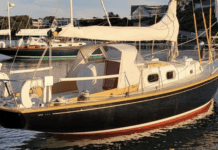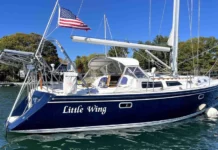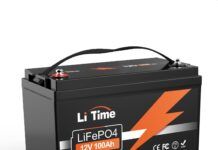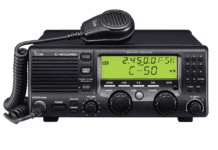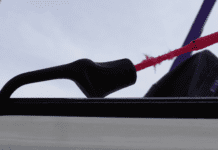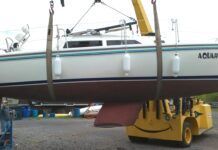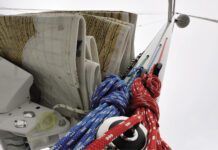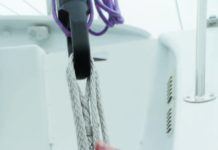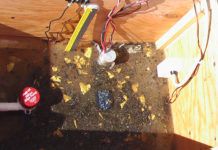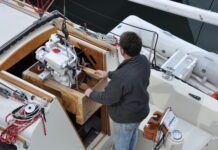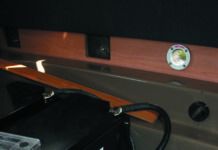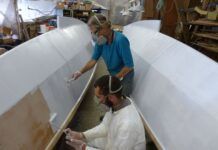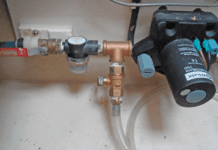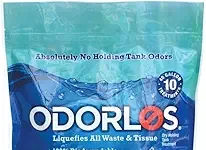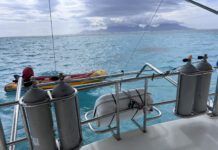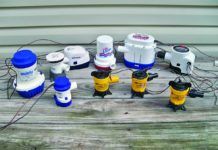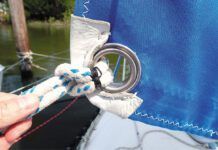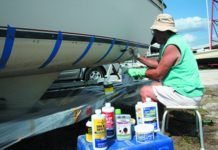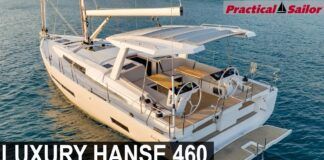High Cost of Parts
Brian La Butes letter in the November 1, 1997 issue (in which he complained that a new compressor for his four-year-old Norcold refrigerator cost $100 more than an entire new refrigerator) invites comment.
I am not a bean counter, just a retired general manager of a scientific instrument and apparatus company with experience on both sides of the cost-of-spare-parts conundrum. The answer is simply that parts for manufacturing and parts for spares are derived from separate inventories with widely different time bases and, therefore, disparate costs. Does that suffice? If not, read on.
My experience includes refrigeration apparatus so replacement compressors can serve as an example of the logic in pricing spare parts.
Refrigeration units are manufactured by specialist companies and purchased by manufacturers of refrigerated devices. If, for example, a batch of 100 end-products is planned, generally only 100 units will be ordered. Granted excellent design, top quality control and timely delivery to Marketing at an agreed transfer price, then Manufacturing has done its job.
Note the agreed transfer price. Historically, Marketing informs Manufacturing that a market of certain size is available at a particular price level. Manufacturing examines its costs, including return on investment and, say, finds slack in certain areas, especially inventory control. Most PS readers will have heard of just-in-time parts delivery; well, it is only the natural development of minimizing cost of inventory for manufacturing. Why the emphasis? Because there is another class of inventory-spare parts.
Manufacturing inventory moves speedily-to be recovered as money. Money, the systemic nutrient of all business, has a time component. The shorter the time the lower the cost.
Spare parts inventory moves slowly, haphazardly, accumulating costs at the current price of money. Ironically, high quality products tend to keep spares on the shelf longer than low quality products. Ponder such a perverse incentive. Some entity must take up the cost of parts. Since Marketing is concerned about customer relations it is natural for Marketing to bear this money/time cost. But costs have to be recovered! From where? The market, of course. In other words, either the price of a spare compressor must be higher or the extra cost must be born by the original product, in whole or part. Marketing can ask Manufacturing to order five extra compressors for spares but cannot expect them to carry the inventory. It is a Marketing cost.
Now, inventory is an asset on the books until converted to cost of sales when sold. Accounting rules require aging inventory to be written down to a reserve for depreciation. It is a loss and will affect the financial report adversely. Eventually, inventory can be written down to zero value (total loss) but in the US tax rules then mandate its disposal.
Also, inventory as an asset (valued annually) increases federal and state corporate income tax. And, the unkindest cut of all, some states levy an inventory tax.
There are partial remedies for this situation. Marketing can insist that distributors carry adequate spares inventory; but that transfers costs to distributors and may hobble their willingness to give local price breaks.
Clearly, the spares situation should be discussed with the manufacturer and distributor before any substantial purchase. Scrutinize a parts list before ordering and ask about expected life of key elements. Get prices and a deal if you take some parts with the merchandise. Ask who makes major items-like electric motors, compressors, hydraulics-and whether they are standard or made especially for the manufacturer.
In North America, we scrap much that is technically repairable because economics of repair are contrary. It is better, therefore, to buy among the best, maintain it properly and expect to pay dearly in some cases if we choose repair over replacement.
However, that dear price reflects the real cost of producing and inventorying the part. The cost balloons, does it not, if you cannot get the part at all?
One may conclude that spare parts are good for customer relations but bad in every other way. A part given to a customer at no charge by Marketing is charged back to Manufacturing, if warranty. If not warranty, Marketing charges the cost to some other account, such as Public Relations, or Unrecovered Warranty Costs. Costs do not just vanish.
And a word of appreciation for bean counters. Our accounting colleagues are vital to any business. They take care of the systemic nutrient.
Ivan Hills
Kinnelon, New Jersey
Ultra-Solv Endorsement
I noticed in the January 15 issue, Riprap section, a letter from Bill Seifert about Ultra-Solv and I want to second his comments. We have tried many other bilge cleaners but always come back to Ultra-Solv. It is reasonably priced at $36.75 for a 5-gallon pail and is available in gallons, too. because, thank goodness, it is NOT a marine product, but a janitor supply product.
We dump it in the ends of wooden boats in the spring and let it work around for awhile after launching. Along with everything else, it has a pleasant, clean, but not too antiseptic smell. Takes out diesel fuel smell in a deep cruising boat bilge, for example, after the Racor has been dropped!
Try it, youll like it, in your next test.
Ron Hoover
West Bay Marine Corp.
Osterville, Massachusetts
Aqua Signal Foredeck Light
I, too, purchased the Aqua Signal Masthead/Foredeck light and lost the retaining ring with a flip of a halyard. A replacement ring was quickly provided, but what now?
Aqua Signal says this happens frequently and that the product is being redesigned. In the meantime, do you plan to carry a bucket of spare rings? Perhaps drill a few holes and secure the ring? Use some tape?
Raymond Perry
Newport, Rhode Island
In the December 1997 issue we mentioned our chagrin at losing the retaining ring to this otherwise handsome and well-made light. Like you, Aqua Signal quickly sent us a replacement at no charge. But when we returned to the boat to go up the mast to install it, we discovered to our dismay that the bulb had fallen to the deck and smashed. That was last fall. We are still waiting for a replacement bulb, special ordered from Italy. A couple of screws sounds like a better solution than duct tape.
Prop Protectors
In your article, Upgrading the PS Test Boat in the December 1997 issue, we were disappointed to read about the propeller protector installed on Viva. We sail out of Salem, Massachusetts and regularly cruise to Marblehead, Manchester and Gloucester. These waters are loaded with lobster pots and one must keep a careful watch to avoid getting caught under sail or motor. We shudder at the thought of someone casually motoring through a field of lobster pots randomly cutting the lines-and livelihood-of professional fishermen. We are familiar with a propeller cage sold to prevent prop snares without severing the float line of the lobster pot. Perhaps a future article could review this product? I like to think that the peace we seek on the water extends to protecting the rights of others as well.
Edward Adelman
Acton, Massachusetts
We, too, respect the commercial fishermen, and wont, at this juncture, get into their practice of dropping pots in channels or discarding floating lines.
Where Credit Is Due…
To BOAT/U.S. I recently had a very favorable experience with the marine insurance division of BOAT/U.S. Some years ago, my 38-foot Barberis sloop suffered severe damage from hitting a rock. BOAT/U.S. had a major yard in Connecticut repair the damage and I assumed that everything was fine. Last year, I shipped Mischief to Bellingham, Washington. Since she was built in 1983, I decided to have a surveyor go over the entire boat. Much to my surprise, he discovered many very serious problems and reported that the earlier repairs had been done so poorly that he did not consider the vessel to be seaworthy. Although it had been years since BOAT/U.S. had paid the original claim, they reopened their file and eventually paid a very substantial sum to have the work done all over again. I cannot recommend them too highly.
Frank Dean
Edmonds, Washington
To Tasco: I purchased a new pair of Tasco binoculars for my wife last fall so she could have her own. During the annual haul-out routine, I carelessly left them lying on top of the Bimini. An industrious crew began to unzip the canvas from below, and you guessed it, a resounding crash occurred to the cockpit floor, resulting in numerous pieces of glass suspended at all angles in the binoculars. I called Tasco, asking if they could possibly fix them, while explaining it was totally my fault. They asked me to ship back the broken binoculars and said they would advise me. I cannot express how surprised I was to receive a brand new pair.
Donald Leuchtag, Sr.,
Canton, Ohio




